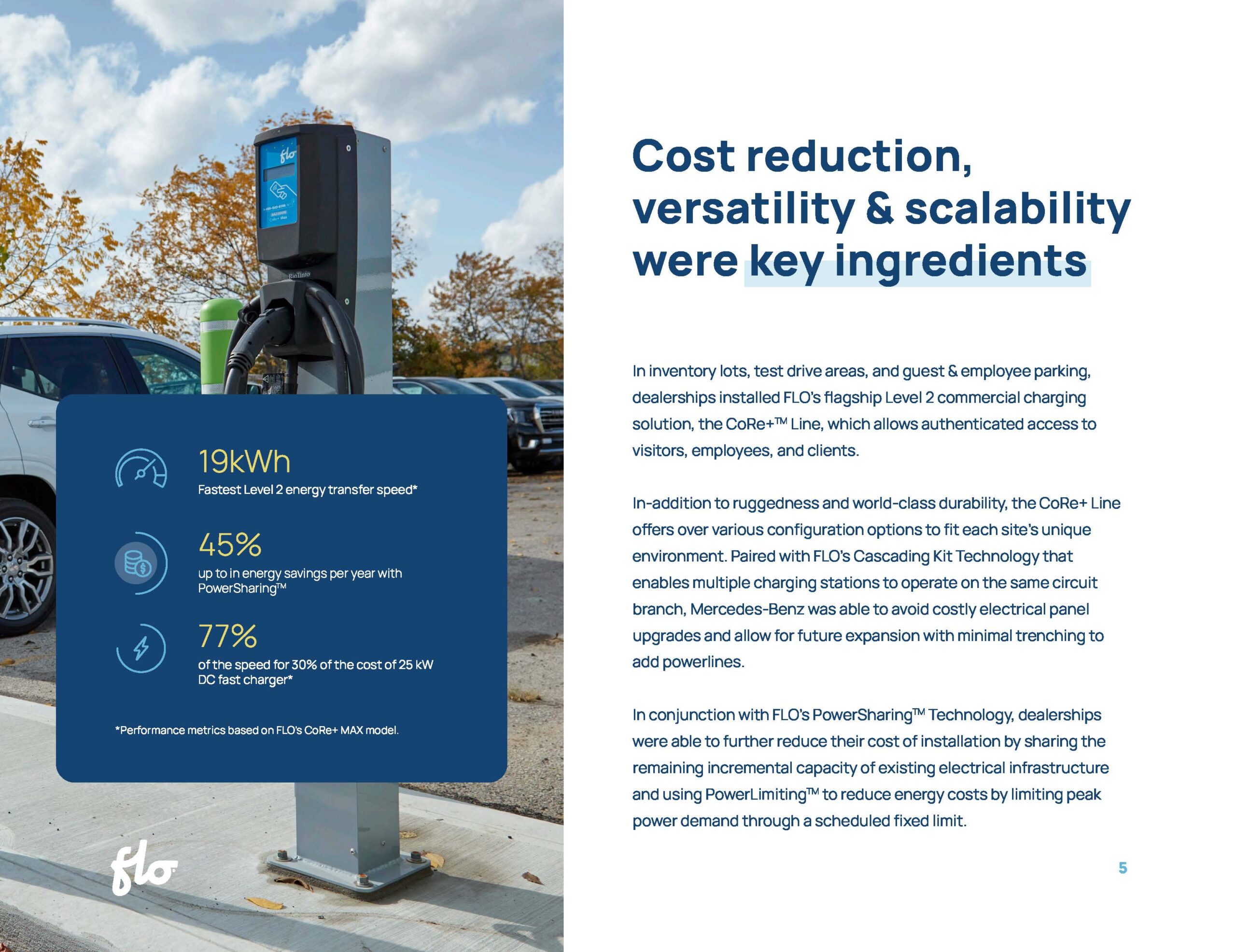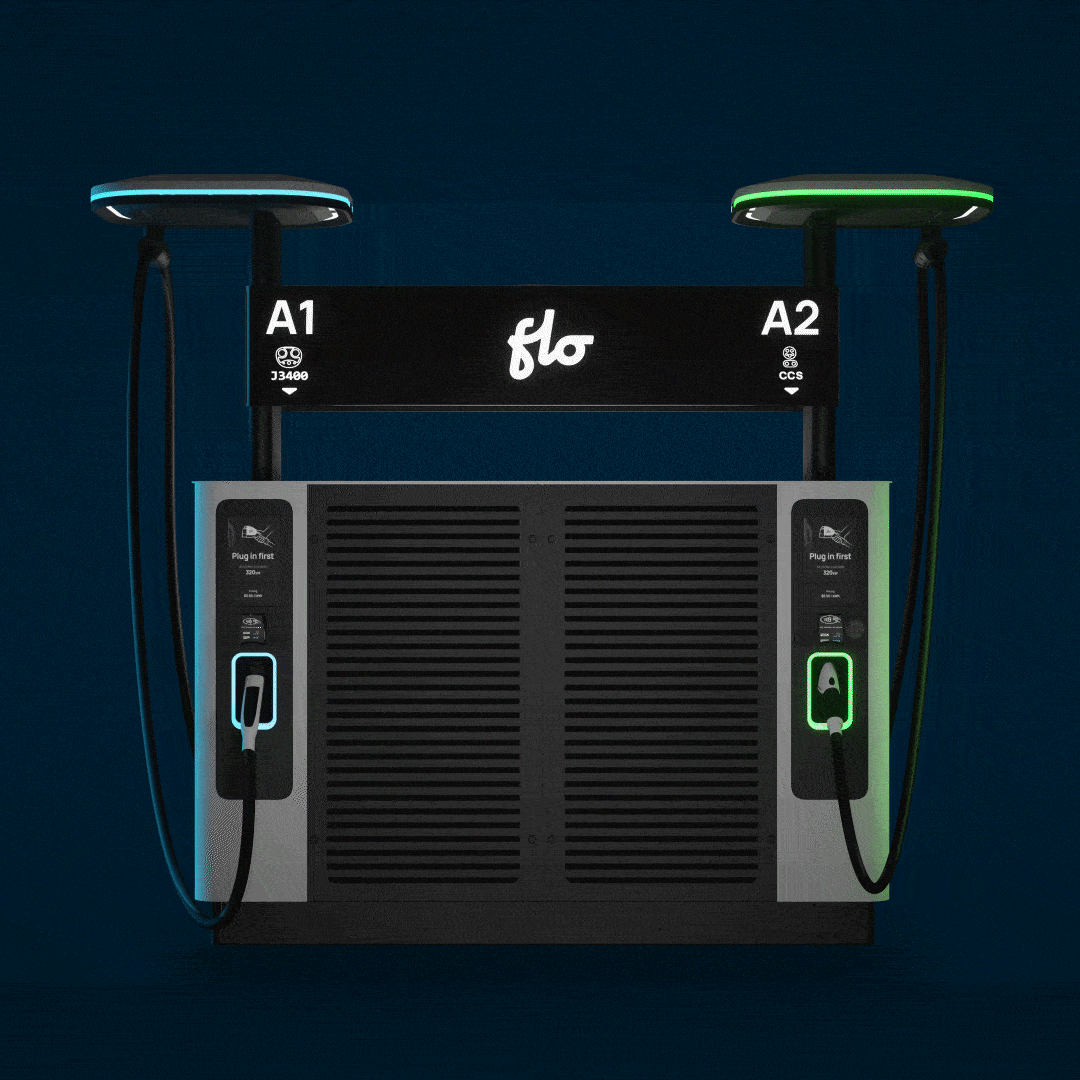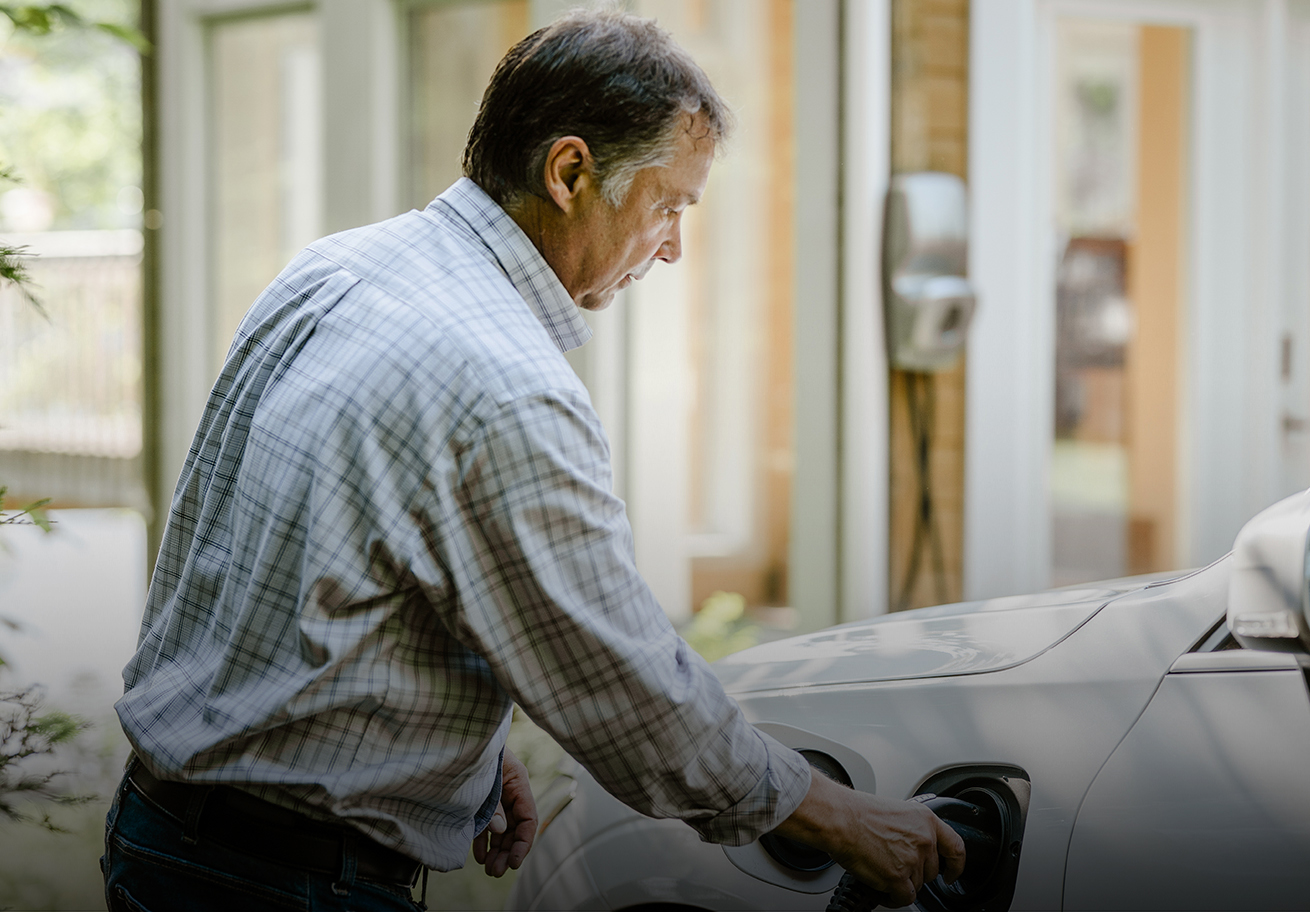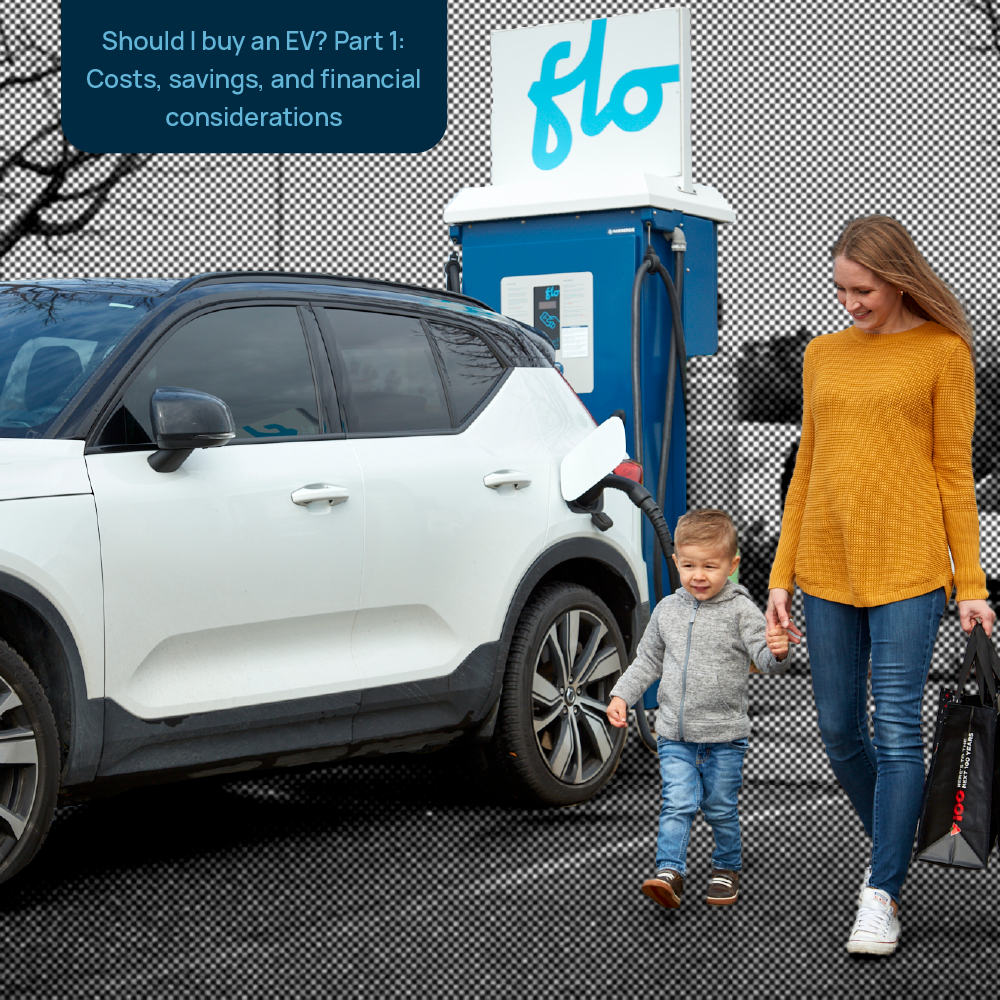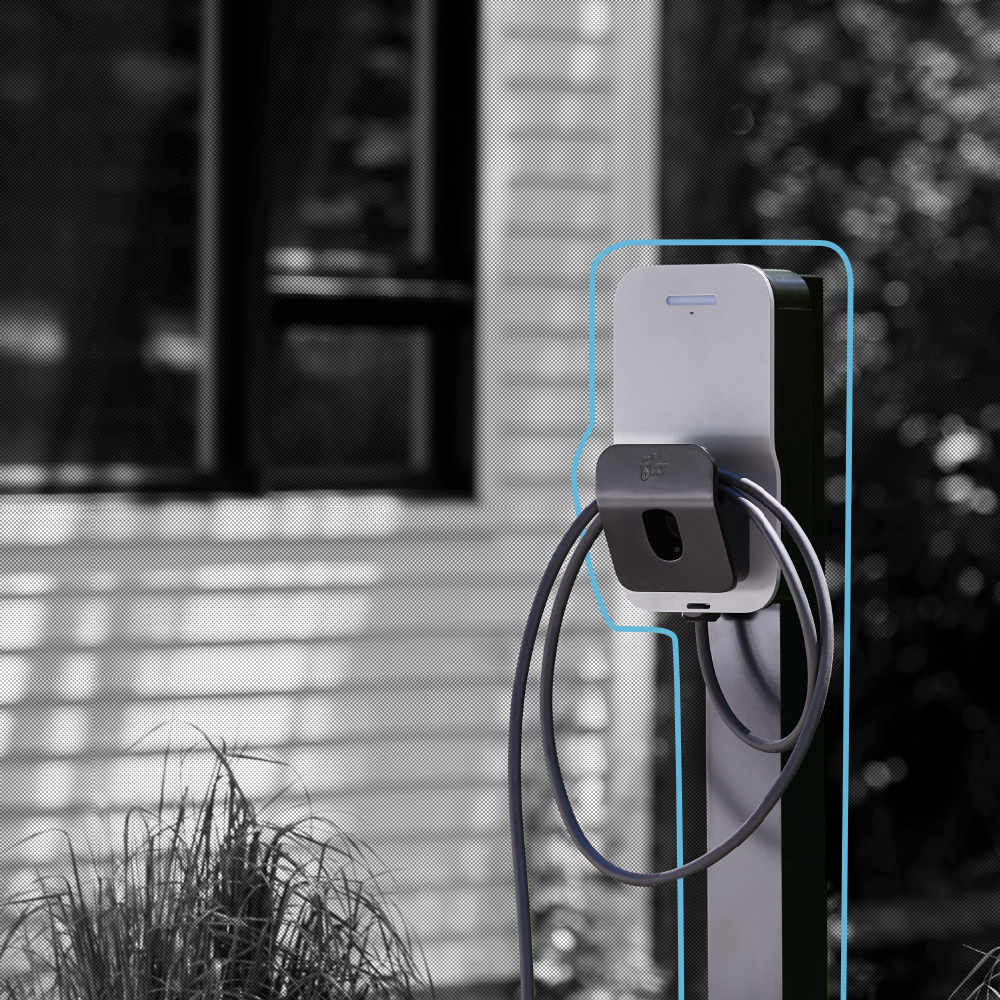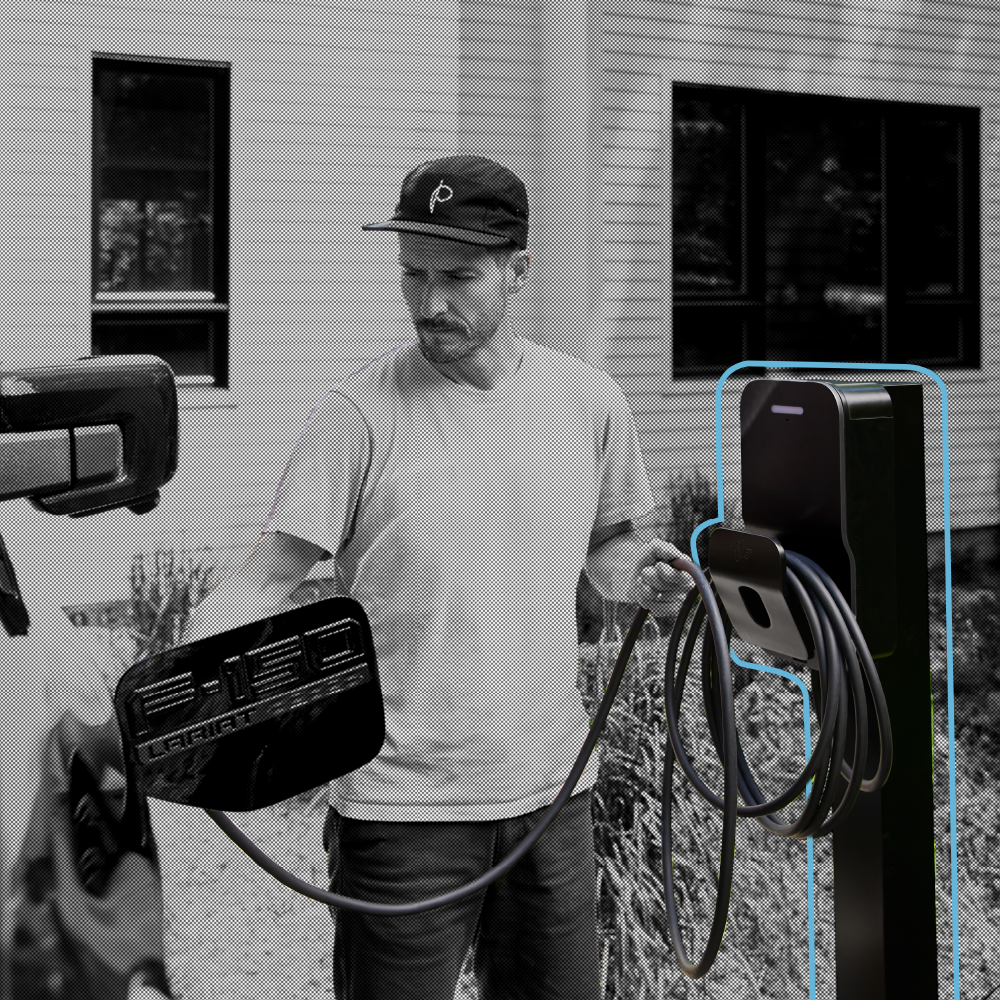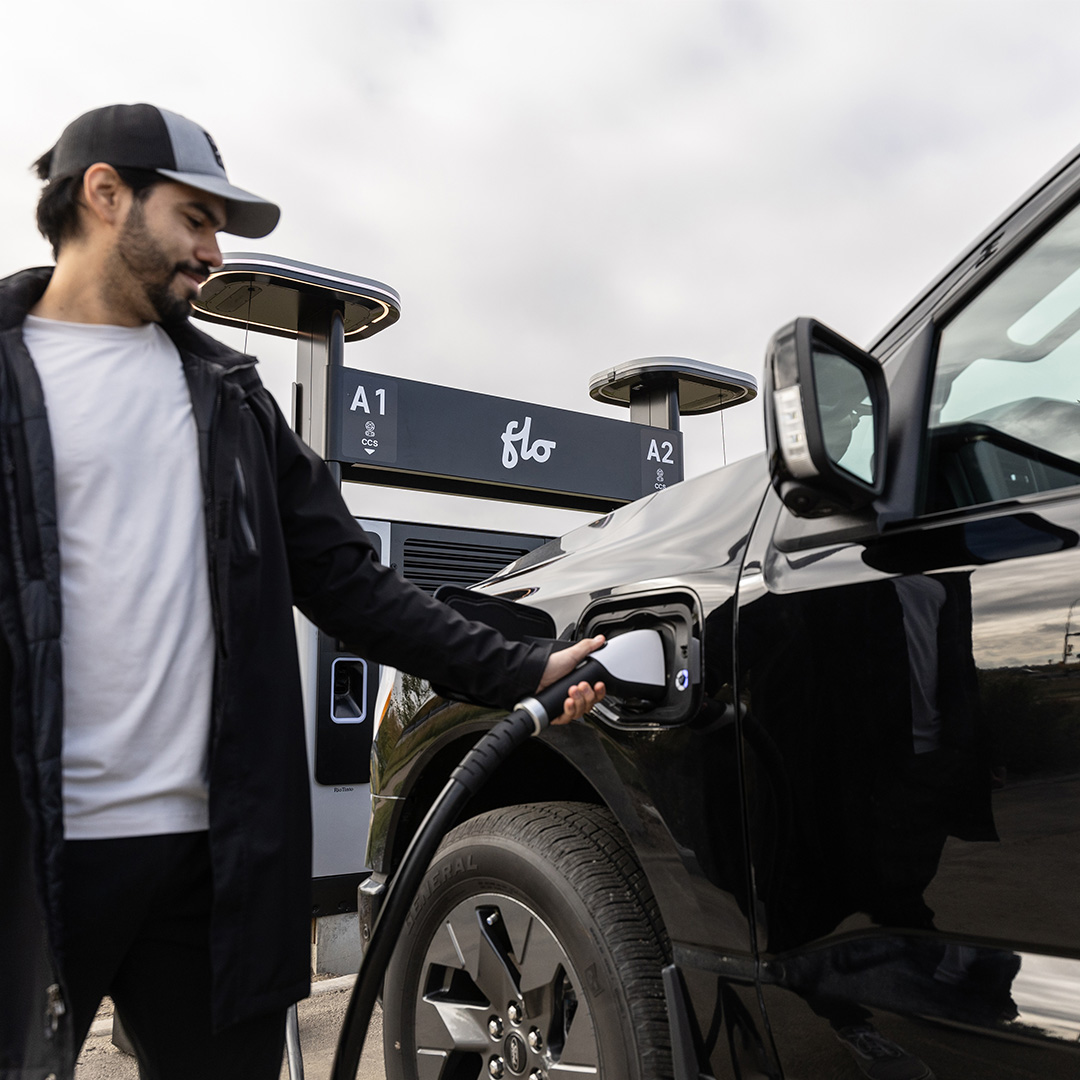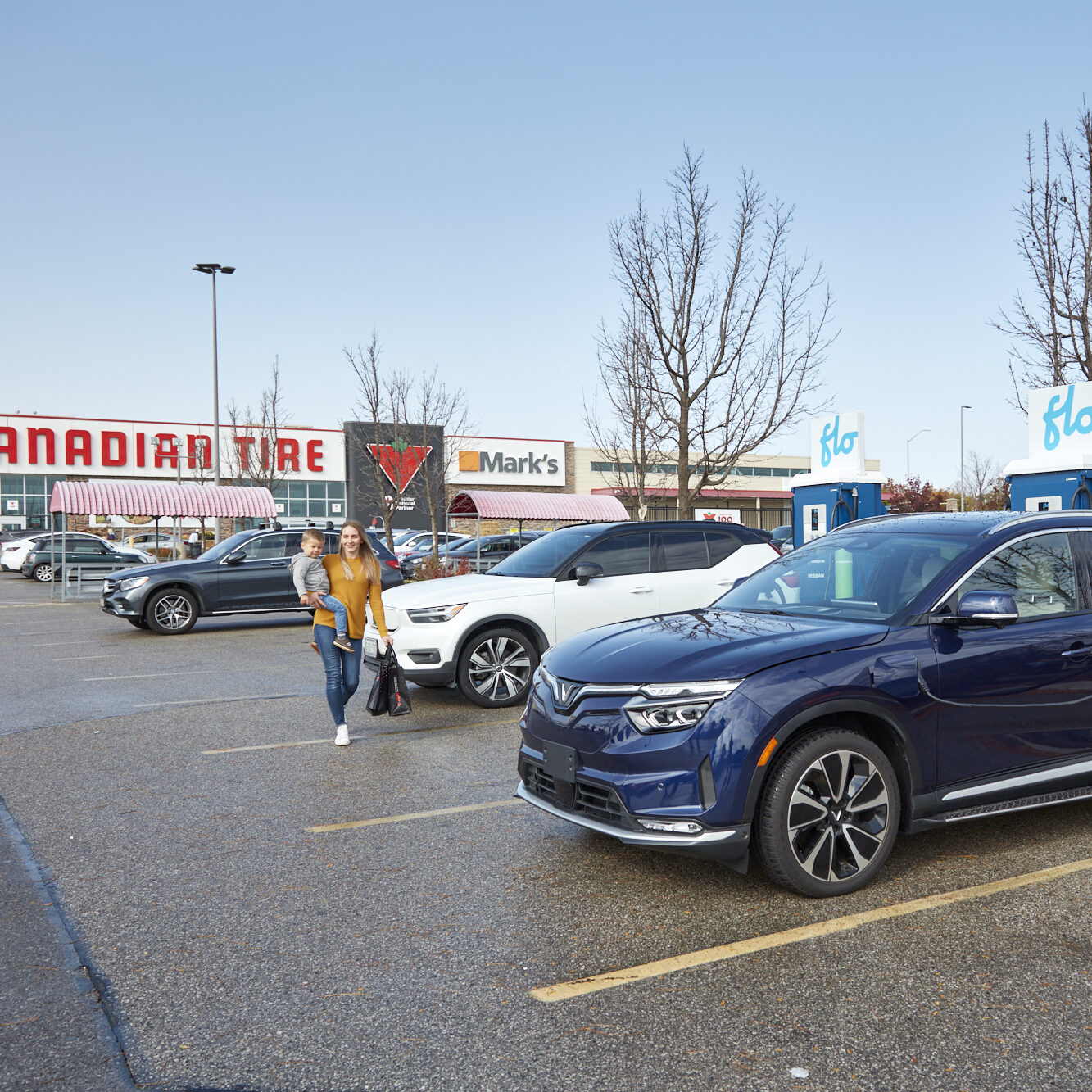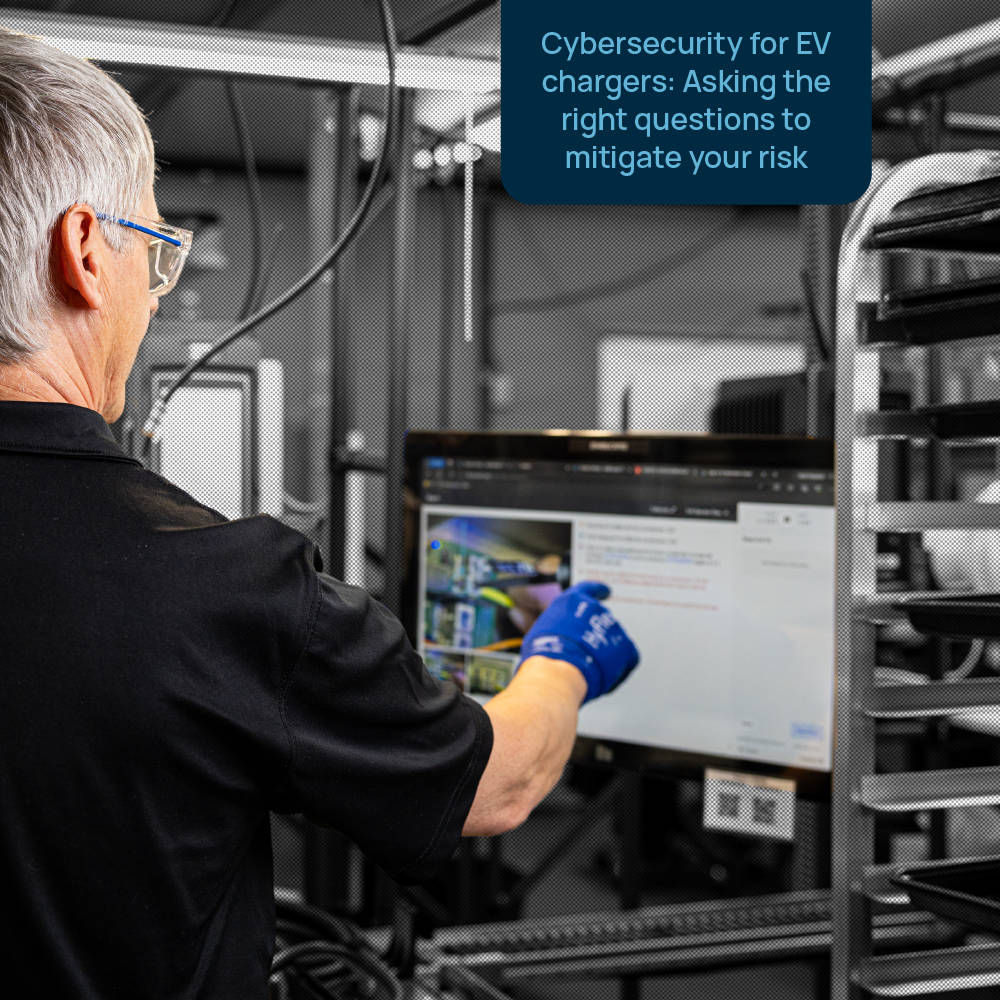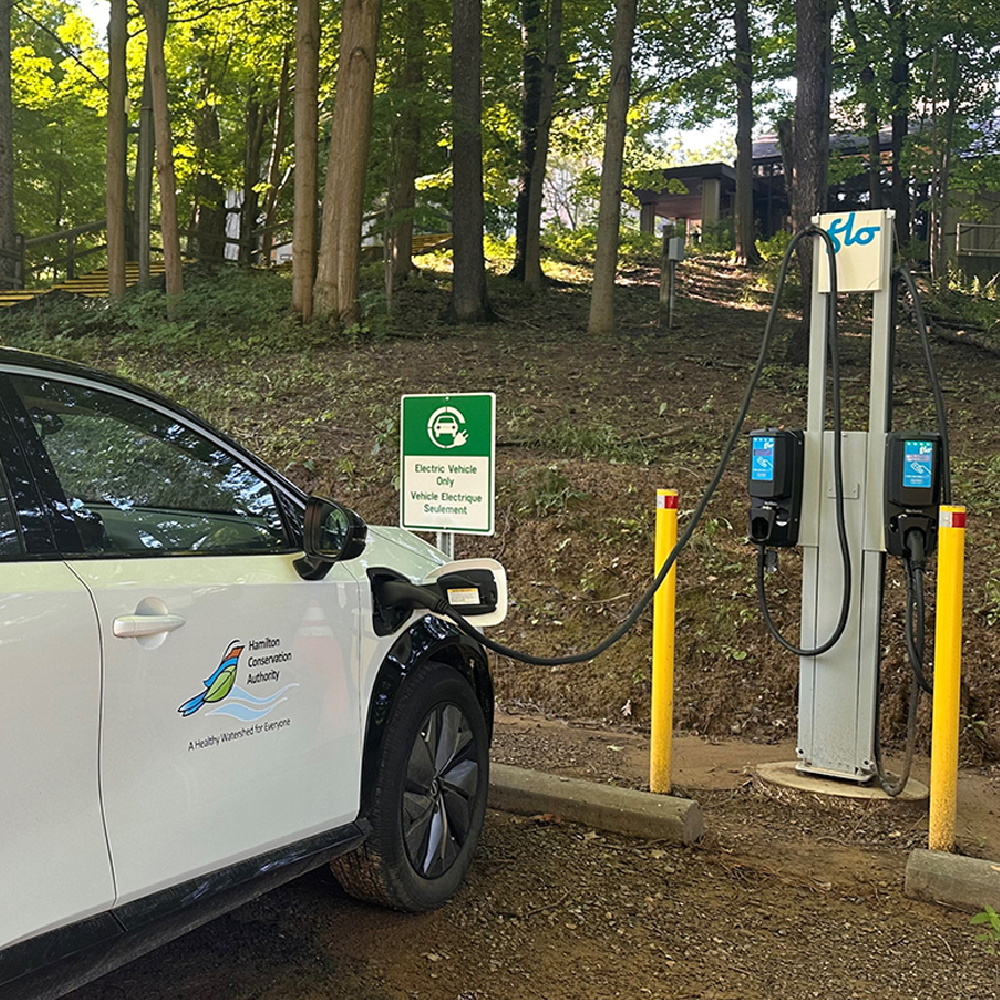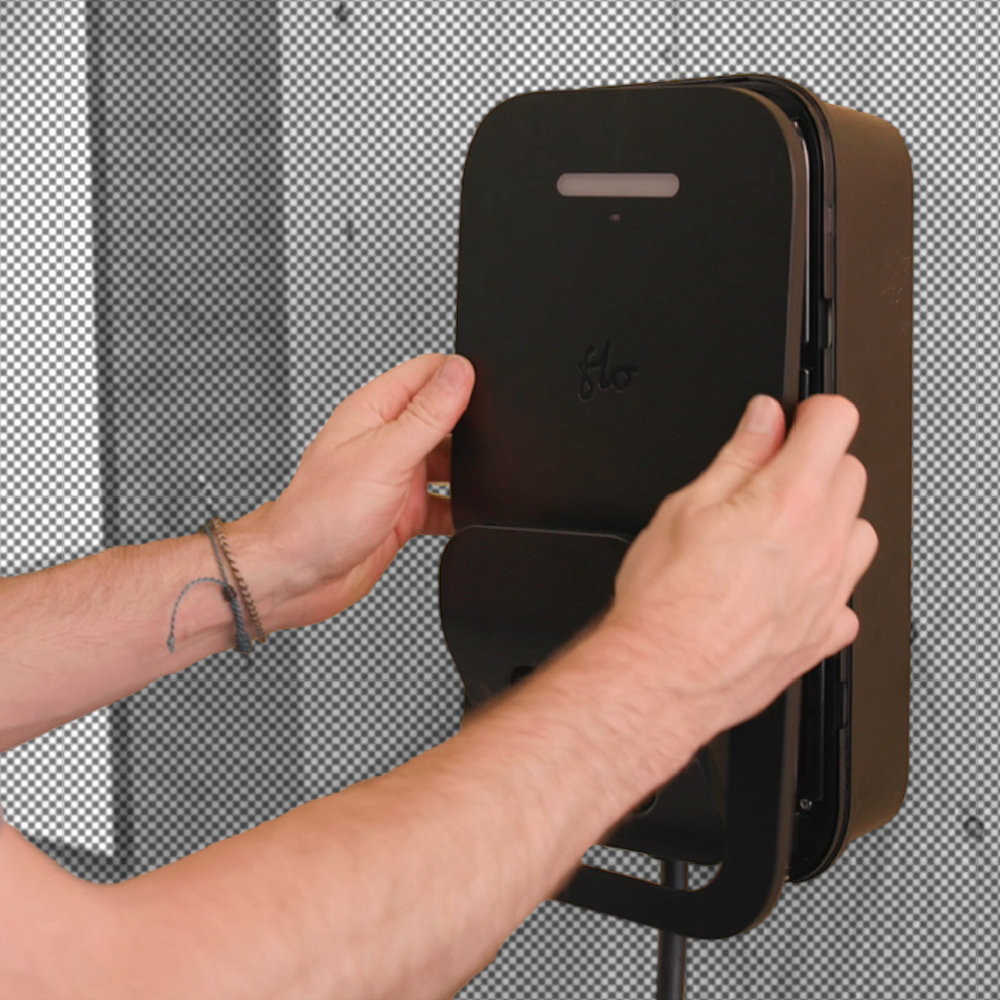Client Overview: Mercedes-Benz (Canada)
-
- Mercedes-Benz (Canada)
- Dealerships: 59
- Segment: Dealerships & OEM
- Project goals:
- Increase EV Sales
- Meet charging Infrastructure needs of Mercedes-Benz EV drivers
- Launch deployment across 59 dealerships
- Foster EV adoption
Keeping sustainability at the core of their business, with a focus on climate protection and air quality, Mercedes-Benz has committed to going becoming carbon- neutral by 2039 which includes electrifying their dealerships and new-car fleet. A subsidiary of Daimler, their holistic approach towards climate protection treats the Paris Agreement as “more than a commitment — [but] a conviction” (Daimler).
In their acceleration towards an emissions-free future, Mercedes-Benz has announced that they will have battery electric vehicles (BEV) in all segments by 2022 and, from 2025 onward, all newly launched vehicles will be fully electric. Clear in their commitment to electrification and sustainable mobility, Mercedes-Benz provides a vibrant vision for the future in which customers are empowered to choose electric alternatives for each model they make.
Preparing for the highly anticipated EQS
The launch of the EQS was eagerly awaited by car aficionados and EV advocates alike. Leading in luxury, the EQS is Mercedes-Benz’ “first all-electric luxury sedan” and has been branded as the future face of electric mobility.
In order to support the rollout of new EV models, Mercedes-Benz sought a partner who could echo and amplify the company’s commitment towards providing customers with a comprehensive, best-in-class experience while delivering fast and high-quality charging solutions. Ultimately, they decided to work with FLO®, a leading North American charging network operator and major provider of smart charging solutions, as the backbone for their electrification program. In 2020, Mercedes-Benz began a keystone partnership with FLO that saw the latter electrify 59 dealerships and position their residential charging solution, the FLO Home™, as the exclusive home charging solution for buyers of a Mercedes-Benz electric vehicle in Canada.
At the onset of their procurement process, Mercedes-Benz decided that their electrification project would require a hardware partner that offered reliable and technology-forward products and delivered on key post-sale elements like installation and customer service. FLO’s focus on durable hardware and a reliable network, along with the company’s comprehensive turnkey solution oversaw the design of an electrification plan, assessment of electrical needs, consultation on installation, and a guided activation & configuration, made them an ideal partner for this project.
“In order to deliver the charging infrastructure our customers expect, we knew this project would need to be all-encompassing,” said Reed Mascola, who as Manager of Strategic Projects at Mercedes-Benz Canada.
A recent system upgrade saw the department transition to an LED energy system, which resulted in excess available power inside the lighting infrastructure. As part of their commitment to fostering EV adoption inside the city’s limits, the city of Los Angeles aspired to using this excess power to install EV charging infrastructure and combat “range anxiety. In detailing their vision for the project, LABSL articulated a specific set of goals and a unique series of challenges. Early conversations with the utility revealed their intentions for the project to be threefold:
- First, to leverage the department’s existing infrastructure (street lighting poles) for installation, thus reducing the overall cost and timeline for deployment
- Second, to source robust and durable hardware capable of functioning in all the diverse neighborhoods the city of Los Angeles offers
- And finally, to deploy the charging stations in a way that would cover a large geographical range, while servicing the largest percentage of the EV driving community possible.
To address the specific challenges presented by the LABSL, FLO’s team of engineers and technicians had to move quickly to adapt their existing technology to the project at hand. The first step was to analyze the SmartTWO™ charging station, and work to understand how it could be grafted directly into the city’s existing street light infrastructure. Ultimately, FLO worked with the city of Los Angeles to develop a mounting bracket which allowed the stations to be installed on the lighting poles. After several iterations and pilot installations, a bracket was developed which suited the purposes of the initial charging station deployment (See Figure 1). Building on this initial success, FLO’s team of engineers developed additional mounting brackets suitable for a variety of street lighting configurations, and further modified the stations with an auxiliary mounting bracket designed specifically for the cable management system of the SmartTWO™ station.
Durability was a key procurement factor for the city of Los Angeles; specifically, the LABSL was intent on finding charging stations that would remain operable through extreme heat or potential vandalism. Similarly, the modular or “hot swap” element of the SmartTWO™ station, which allows a repair technician to quickly and easily replace broken or malfunctioning components in as little as ten minutes, was also an important factor for the LABSL in choosing FLO as a charging solutions provider. This modular technology assists greatly in maintaining a high station “uptime,” a priority for both EV drivers and station owners.
Mercedes-Benz Case Study
The first Mercedes-Benz is widely considered “the first modern car” that sparked the era of automotive engineering. With over 130 years of automobile history, Mercedes-Benz has remained at the fore of technological innovation and industry leadership.
